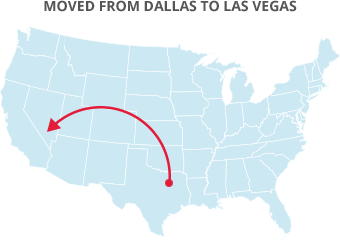

 By Julie DeLong, A-1 Freeman Moving Group
By Julie DeLong, A-1 Freeman Moving Group
Let's start with what you'd consider hidden costs--the expenses associated with moving that don't involve the actual move.
If your move is local or a company-paid relocation, you can skip this section. If your move is long-distance and you're footing the bills, be sure to factor in the costs of house hunting. This includes airfare, hotels, food and gas if you're driving the distance to your new spot. Bringing the kids and dog along is probably more fun in theory, so add in babysitters and pet care.
Be mindful of the money you spend on the front end. Getting a great price for your house and anticipating you'll be flush with cash after closing is fine, but don't get ahead of yourself. Selling a house comes with realtor fees, and invariably you'll have to pay some repairs or closing costs for the buyer. So, fly coach until you've got the money in the bank.
The actual move is the most financially transparent expense in the process. Your professional mover should come to your house to provide an accurate estimate based on the number of rooms, estimated weight (nobody brings scales, so don't worry about that) distance, and labor needed. They will give you a written estimate that itemizes the scope of work and the cost for each section. If there are pianos, grandfather clocks, antiques, or items that will need to be fully crated and uncrated, expect to pay additional charges for those add-ons.
Most movers offer a wide range of services from a full-service move, where they come in, armed with boxes and tape and blankets and pack up everything for you, to basic service where they send over a truck and a couple of guys to load, drive, and unload.
If you want to do your own packing, the moving company you select can supply you with the boxes, tape, and other supplies you'll need. Some people are comfortable packing everything while others prefer the movers pack specialty items like mirrors, art and electronics. Ask your mover what those a la carte services or specialty boxes cost. You don't want to break your new Ultra HD TV by using the wrong box and packing materials.
This is easily the most expensive part of the move, but you'll know that number ahead of time, so you can build the rest of your budget around it.
Ask your insurance agent how your homeowners coverage works for a move; you may need additional insurance that is effective during the move itself. Chances are that you're covered, but an additional rider that is exempt from your deductible is not a bad idea.
Murphy's Law is never truer than when you're moving, and houses aren't always ready for new owners. Especially if you're building or renovating prior to moving in, plan for temporary storage until all the work is done.
If you're driving to your new house, getting your cars there is obviously easy. If not, you probably have a few options—talk to your moving company about including vehicles in the estimate with your household goods move or a vehicle transport service or a road trip with your college roommate and then buy them a return ticket home.
Now that you're just exhausted thinking about all the ways you and your money part company during a move, there is one more thing. Once you hit the road for a long-distance move, you've got to plan for lodging and meals along the way. If you're flying, there's the airfare to consider, as well as pet transport fees (unless a driving adult takes the animals).
Finding hidden expenses and planning for what could go wrong goes a long way towards a smooth and stress-free move, if such a thing exists. Your moving company is a great resource for any questions you have. Trust us, we've seen it all and usually have the answer to just about anything.
If you are ready to start budgeting for your move, give us a call!

